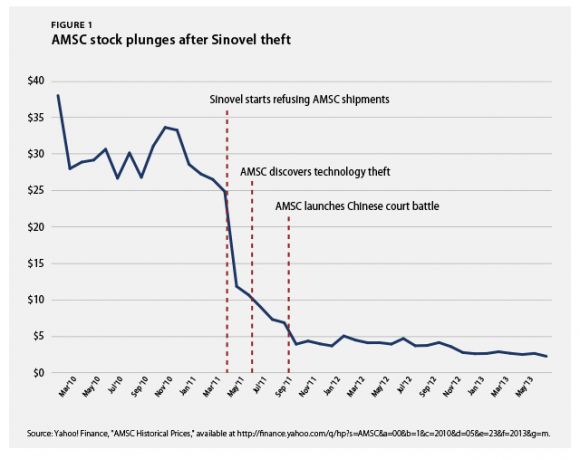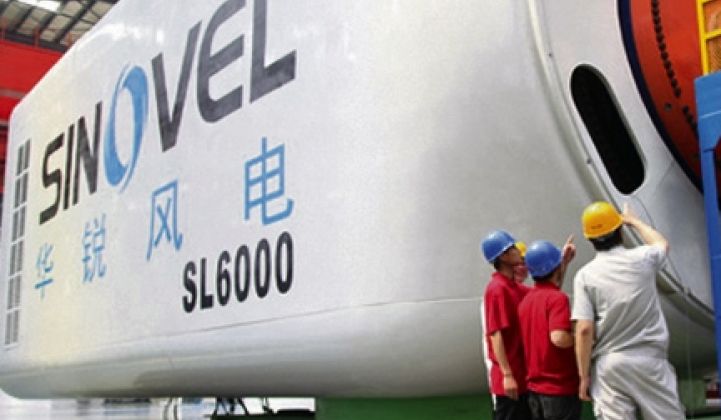The Department of Justice (DOJ) has officially jumped into the international corporate espionage dispute between Chinese wind manufacturer Sinovel and American technology provider AMSC.
Yesterday, Acting Assistant Attorney General Mythili Raman announced that DOJ had charged Sinovel, two Sinovel executives and a former AMSC executive for conspiracy to commit trade secret theft, theft of trade secrets and wire fraud.
“The allegations in this indictment describe a well-planned attack on an American business by international defendants -- nothing short of attempted corporate homicide," said one of the U.S. attorneys prosecuting the case.
The story of Sinovel's corporate theft is well known within the wind industry. But the case is now getting attention at the highest levels of government in China and the U.S., where clean energy issues have become a driving force in international trade and geopolitics.
In 2011, investigators for AMSC found that an employee in Austria had secretly sold the company's proprietary voltage-control software to Sinovel, one of China's largest wind companies. Sinovel also happened to be AMSC's biggest customer. So when Sinovel got access to the software and abruptly stopped making orders, AMSC's stocked fell through the floor, wiping out 80 percent of the company's value and resulting in the layoff of 500 workers. (For a blow-by-blow account of the entire saga, read the fascinating Bloomberg Businessweek article on how it all unfolded.)
Melanie Hart of the Center for American Progress put together this timeline of what happened to AMSC's value after the theft:

The former employee who stole AMSC's intellectual property, Dejan Karabasevic, already pleaded guilty in an Austrian court and was sentenced to a year in prison. If convicted by the U.S. government, Karabasevic could face up to five years in prison for conspiracy, ten years in prison for stealing trade secrets and twenty years in prison for wire fraud. The other Sinovel employees could see similar sentences if found guilty.
Sinovel faces a possible five-year probation and a fine equal to double the losses incurred by AMSC. The government said AMSC lost $800 million, putting Sinovel's fine as high as $1.6 billion.
AMSC is also seeking to recover $1 billion in damages through the Chinese courts. However, the courts are highly connected to the Communist Party in China (and Sinovel is connected to party leaders), so the cases have dragged on without any recompense.
"In the West, these cases would be open-and-shut wins for AMSC. The rogue engineer has already pleaded guilty in European courts, testified to his collusion with Sinovel in the theft, and served jail time for his crimes. AMSC has every form of evidence a copyright plaintiff could possibly hope for, including monetary transfers to the engineer from Sinovel and data transfers to Sinovel via the engineer’s Gmail account," wrote China expert Melanie Hart in an analysis of the case.
Last month, China's supreme court took up two AMSC civil suits against Sinovel, leading China watchers to wonder if party officials were ready to take action. Officials from the Obama administration have engaged Chinese officials on the AMSC case at the highest levels in an effort to get tough on intellectual property theft. According to a U.S. government report, IP theft is costing the American economy $300 billion each year -- and the majority of the theft activity is coming from China.
"The Sinovel case is a classic example of the growing insider threat facing our nation's corporations and their intellectual property,” said Richard McFeely, the FBI's executive assistant director, in a statement. The FBI took the lead in the investigation.
The charges come after the U.S. criticized China for harboring another information leaker, former NSA contractor Edward Snowden. An expert close to the case said the timing of the Sinovel legal case was "coincidental."



